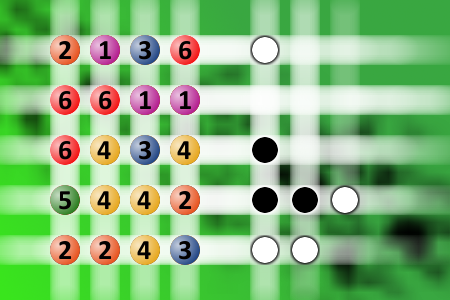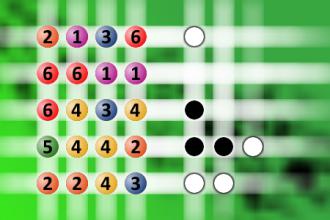Which is a winning combination of digits?
The computer chose a secret code (sequence of 4 digits from 1 to 6). Your goal is to find that code. Black circles indicate the number of hits on the right spot. White circles indicate the number of hits on the wrong spot.
A blonde and a lawyer are seat...
The blonde, tired, just wants to take a nap, politely declines and rollsover to the window to catch a few winks. The lawyer persists and explainsthat the game is easy and a lot of fun. He explains, I ask you aquestion,and if you don't know the answer, you pay me $5.00, and vise versa.
Again, she declines and tries to get some sleep. The lawyer, nowagitated,says, "Okay, if you don't know the answer you pay me $5.00, and, if Idon'tknow the answer, I will pay you $500.00."
This catches the blonde's attention and, figuring there will be no end tothis torment unless she plays, agrees to the game.
The lawyer asks the first question. "What's the distance from the earthtothe moon?" The blonde doesn't say a word, reaches into her purse, pullsouta $5.00 bill and hands it to the lawyer.
Okay says the lawyer, your turn. She asks the lawyer, "What goes up ahillwith three legs and comes down with four legs?" The lawyer, puzzled,takesout his laptop computer and searches all his references, no answer. Hetapsinto the air phone with his modem and searches the net and the library ofcongress, no answer. Frustrated, he sends e-mails to all his friends andcoworkers, to no avail.
After an hour, he wakes the blonde, and hands her $500.00. The blondesays,"Thank you," and turns back to get some more sleep.
The lawyer, who is more than a little miffed, wakes the blonde and asks,"Well, what's the answer? "Without a word, the blonde reaches into herpurse, hands the lawyer $5.00, and goes back to sleep.

